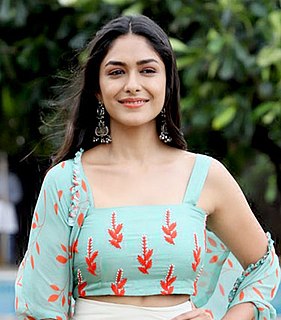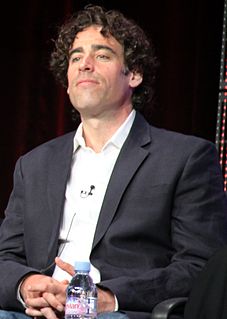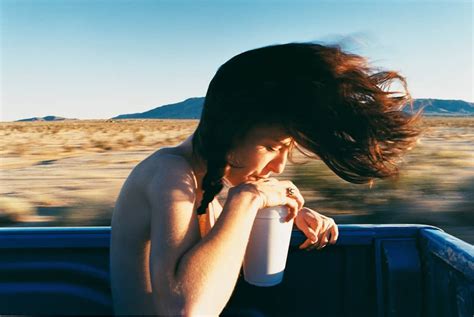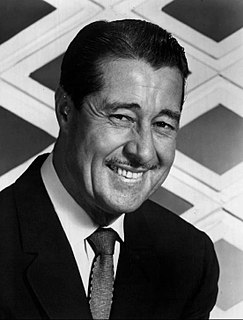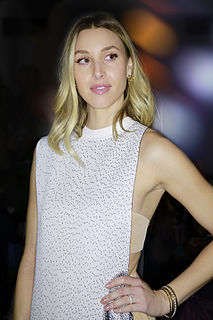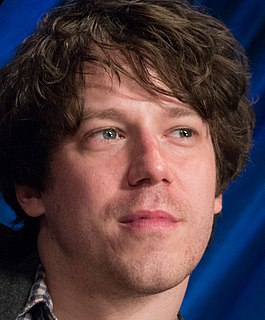A Quote by Mrunal Thakur
It's only when I faced the camera that I realised how confident I was on screen!
Related Quotes
It's just a matter of who you are and how you talk to people. Your subjects will trust you only if you're confident about what you're doing. It really bothers me when photographers first approach a subject without a camera, try to establish a personal relationship, and only then get out their cameras. It's deceptive. I think you should just show up with a camera, to make your intentions clear. People will either accept you or they won't.
Film, television, and working with a camera is such an intimate art form that if a camera is right on you, and I've got your face filling the screen, you have to be real. If you do anything that is fake, you're not going to get away with it, because the camera is right there, and the story is being told in a very real way.
There's a screen direction in the script for the pilot where it says, 'Jim Harper, mid-20s, enters,' and it said something to the effect of: 'He's confident without being cocky. He has no idea that he could be considered attractive, because he saw All The President's Men when he was thirteen and never looked up.' It was just a great little gem of a screen direction, and I felt immediately from just that, that I had a good idea of how to play this guy.
Once I realised that my job as a model was to emote in front of the camera, I thought, 'Well now, I just have to add words, and I can do films.' But also, my success as a model made me more confident about becoming an actress because, just in case I failed, I thought, 'Well, you know, if I failed as an actress, I can do another job.'
